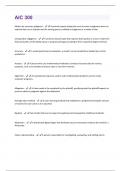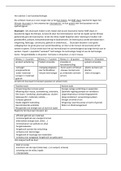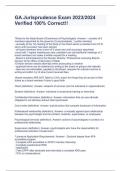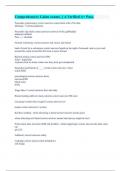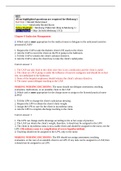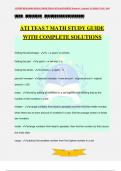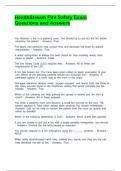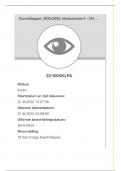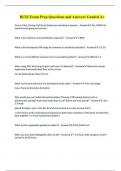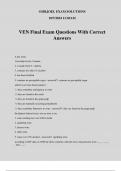Exam (elaborations)
AIC 300 Questions And Answers With Verified Updates
- Course
- Institution
Motion for summary judgment - A pretrial request asking the court to enter a judgment when no material facts are in dispute and the moving party is entitled to judgment as a matter of law. Comparative negligence - A common-law principle that requires both parties to a loss to share the financial...
[Show more]
